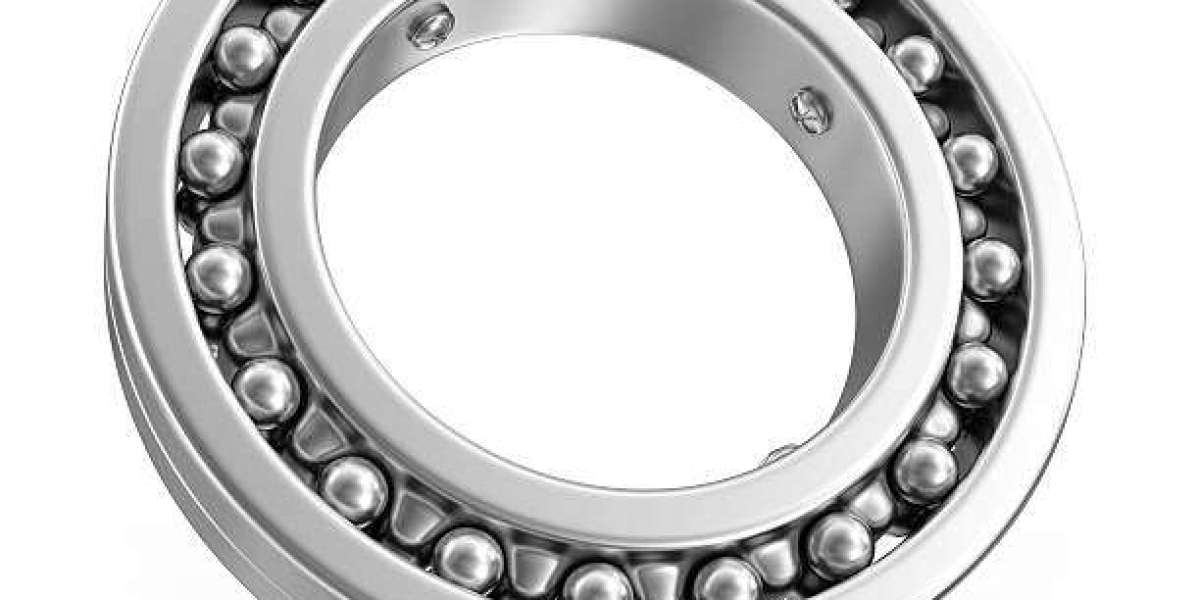In the world of machinery and engineering, ball bearings play a critical role in ensuring smooth, efficient, and reliable operation of mechanical systems. From automobiles and industrial machines to household appliances, ball bearings reduce friction between moving parts, allowing machinery to operate with minimal wear and maximum efficiency.
What Are Ball Bearings?
A ball bearing is a type of rolling-element bearing that uses spherical balls to maintain the separation between two moving parts, typically the inner and outer races. The primary function of a ball bearing is to reduce rotational friction and support radial and axial loads.
The balls within the bearing allow for smooth rotation while distributing the load evenly, which enhances the lifespan of the machinery and reduces maintenance needs. Ball bearings are widely used because of their durability, efficiency, and versatility.
Types of Ball Bearings
Ball bearings come in several types, each designed for specific applications:
Deep Groove Ball Bearings
- Most common type.
- Supports both radial and axial loads.
- Used in motors, pumps, and household appliances.
Angular Contact Ball Bearings
- Designed to handle combined radial and axial loads.
- Often used in high-speed applications such as turbines and gearboxes.
Self-Aligning Ball Bearings
- Can accommodate misalignment between the shaft and housing.
- Ideal for conveyor belts and agricultural machinery.
Thrust Ball Bearings
- Specifically designed to handle axial loads.
- Used in applications like automotive clutches and turntables.
Miniature and Precision Ball Bearings
- Small-sized bearings used in electronics, medical equipment, and high-precision instruments.
Materials Used in Ball Bearings
Ball bearings are made from materials that provide strength, durability, and resistance to wear and corrosion:
- Chrome Steel: Most commonly used for high load and speed applications.
- Stainless Steel: Offers corrosion resistance, suitable for marine or humid environments.
- Ceramic: Lightweight, high-speed, and heat-resistant, often used in aerospace and advanced machinery.
- Plastic or Polymer: Lightweight and corrosion-resistant, used in medical devices and food processing equipment.
Applications of Ball Bearings
Ball bearings are used across a variety of industries and applications:
- Automotive Industry: Wheels, gearboxes, engines, and alternators.
- Industrial Machinery: Conveyor belts, pumps, motors, and turbines.
- Household Appliances: Washing machines, fans, and air conditioners.
- Aerospace: Aircraft engines, landing gears, and control systems.
- Medical Equipment: Dental drills, surgical tools, and diagnostic machines.
The versatility of ball bearings makes them essential for reducing friction, improving efficiency, and extending the lifespan of mechanical components.
Advantages of Using Ball Bearings
- Reduced Friction: Minimizes wear and tear on machinery components.
- High-Speed Capability: Allows machinery to operate at higher speeds efficiently.
- Durability: High-quality bearings last for years with proper maintenance.
- Load Handling: Capable of supporting both radial and axial loads.
- Low Maintenance: Requires less lubrication and regular attention compared to plain bearings.
Maintenance Tips for Ball Bearings
Proper maintenance ensures that ball bearings operate efficiently and have a long lifespan:
- Regular Lubrication: Use grease or oil recommended by the manufacturer.
- Keep Bearings Clean: Prevent contamination with dust, dirt, or moisture.
- Check for Wear: Inspect bearings for noise, vibration, or rough rotation.
- Avoid Overloading: Never exceed the recommended load capacity.
- Proper Installation: Ensure bearings are installed correctly to prevent misalignment and premature failure.
Conclusion
Ball bearings are small yet indispensable components in machinery, ensuring smooth operation, reducing friction, and improving efficiency. Their diverse types, materials, and applications make them suitable for nearly every industry — from automotive and aerospace to household appliances and medical equipment.
Investing in high-quality ball bearings and maintaining them properly ensures the longevity and reliability of your machinery, reduces downtime, and saves costs on repairs. Whether you are running industrial equipment or a household appliance, ball bearings remain a key factor in keeping machines operating smoothly.



